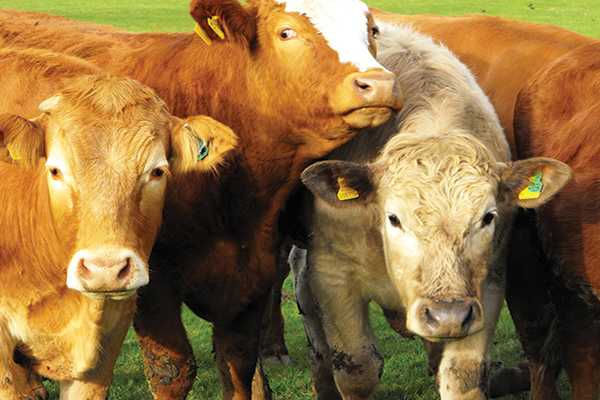State wants Zone 6 farmers’ compensation order stayed
The state has applied for a stay of execution in the case in which Francistown High Court Judge Barnabas Nyamadzabo instructed government to compensate Zone 6 farmers whose beasts were slaughtered during the 2011 Foot and Mouth Disease (FMD) outbreak, accordingly.
Government had initially proposed to compensate the farmers P1700 per beast. The farmers’ bone of contention was that government killed their uninfected beasts. Most of them were commercial farmers who spent thousands of Pulas in improving their breeds; therefore the P1700 per beast compensation offered by government was regarded inadequate.
Instead, the disgruntled farmers who lost about 1800 cattle demanded P9, 294 million for their cattle. Some farmers claimed that they reared beasts which valued at P80 000 each. The government had intended to give farmers around P3.6 million as opposed to P14 million of the market price of the slaughtered cattle. The state believes it has prospects of success in the appeal. It says the judgment should not be processed as they feel that they might resolve issues with the farmers.
“The registrar shall not proceed with the matter in quantification of adequate compensation as per the Order of 03 March 2017, until the outcome of the appeal,” reads the application. The state further contends it has the right to appeal the interlocutory judgment which was delivered on that fateful date.
In his verdict, Nyamadzabo had said that the Director of the Veterinary Services’ decision to order the slaughter of the farmers’ cattle during the FMD outbreak around June 2011 be set aside as it was unreasonable. He also said the decision was unfair having regard to the status of the farmers’ cattle at the time.“The amount of P1700.00 determined by the Minister at the time proposed or paid as compensation for each beast of the farmers slaughtered at the time be set aside in favour of a reasonably negotiated amount or one assessed by the Registrar and Master. The applicants be and are entitled to costs (as taxed or agreed),” ruled Nyamadzabo at the time.
Justice Nyamadzabo had further said that the respondents’ actions to slaughter uninfected and vaccinated cattle, was contended that they ought not to have exterminated in light of the respondents’ communication and extensive efforts made to conduct at least two vaccination phases on those uninfected cattle. He said that normally, when a large number of cattle is found infected in a given Zone the whole Zone is declared infected for purposes of making it easier for the Department of Veterinary Services to limit and fight the spread in a smaller area such as a Zone rather that the whole country.
“By declaring a Zone infected cannot reasonably be taken to mean that each and every cloven hooved animal found in that Zone is infected. Considering that outbreak occurred in one corner of this relatively large area as Zone 6 and efforts seem to have taken reasonably quickly to contain the spread, it seems not farfetched that cattle from other parts of the Zone which would not have come into contact with the infected cattle would have remained uninfected,” he said.
He continued that in this circumstance, he finds merit in the farmers’ contention that their cattle had remained uninfected during the outbreak especially that the Department of Veterinary Services has not availed specific documentary evidence showing that every beast belonging to the concerned farmers was infected.
Nyamdzabo added that the Director of Veterinary Services is the absolute authority responsible for the prevention and control of diseases of animals in the country and matters incidental thereof. “The Director at the time was quite alive to these responsibilities,” he added.
Nyamadzabo further added that it was suggested by the farmers’ attorney that the Office of the President (OP), in particular His Excellency the President usurped the powers of the Director when the Presidential Directive was issued. However he said that in the Director’s answering affidavit as well as the memorandum which outlines proposal of the Ministry of Agriculture to the Office of the President are clear that the decision to exterminate cattle in Zone 6 did not originate from OP.
“As it is the Presidential Directive simply “approved measures” already taken by the Director and his Ministry on strategies deemed appropriate to eradicate the disease,” he explained. In their earlier arguments, counsels for the farmers, Duma Boko and Mirriro Furusa said that P1700 is inadequate to compensate the farmers. Boko said at the time that farmers have invested a lot but the government offers to give them peanuts in return. He said by killing farmers’ cattle government has affected many people’s source of living as they depended on their livestock for their livelihood. He told the court that Presidential directive is not the law and that the government must respect the constitution.
“There is no provision in the Diseases Animal Act that directs the President and the Minister of Agriculture to direct the slaughter of the infected cattle,” Boko said. He said that those powers are only reserved for the Director of Veterinary Services according to the Constitution.
Furusa said that the cattle were not infected but they were in an infected area. “The Director is within his rights to declare an area infected. However his powers do not end there, he must go further and scientifically prove that animals are infected,” he said. In addition he said that just because an area is declared FMD does not mean all cattle in that particular area are infected.
In response, Ndiye Balule of the Attorney General argued that Section 5 of Diseases Animals Act states that any animal within an infected area should be isolated, slaughtered for purposes of disease control. He said that if the animal is in that locality it will be exposed to the virus. Balule opposed Boko’s insinuation that President Ian Khama is the one who ordered the slaughter of the cattle.






